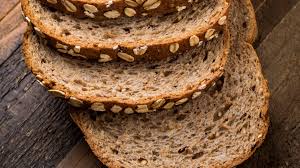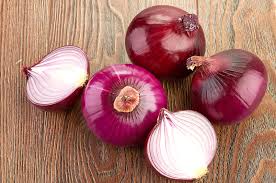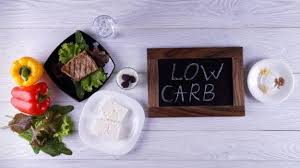Does the word Diet make you think of unpleasant weight-loss regimen? Forget it, Diet also refers to the food and drink a person consumes daily and the mental and physical circumstances connected to eating. Eating nutrition give you beautiful body not just outside but also inside.
Breads are a controversial food for a number of reasons, one of which is that most commercially-available breads are rich in processed grains. Breads made from processed grains add unnecessary calories to your diet, without lending any benefits and they may even lead to weight loss and other health issues. Breads have been demonised, all thanks to countless research studies that have blamed this common food for raised blood sugar levels, obesity and other ailments. However, all breads are not alike. Breads made from whole grains may actually be beneficial for your health as whole grains come with a whole lot of nutrition, including essential micro- and macro-nutrients.
Unless you're on a low-carb diet, you may include whole grain breads in your diet, given that you eat them with high-fibre vegetables and good quality protein for a more holistic meal. There are certain whole grain and nut bread options that are healthier than brown bread and refined flour white breads. These breads are high in their fibre and protein content and are especially good for those who need to load up on high amounts of protein on a daily basis.
High-Protein Breads
1. Oat Bread
Oats are nutritious whole grains that should be included in your protein-rich diet for weight management. Breads made from oats in their batter will be rich in protein as whole oats contain good amounts of the macro-nutrient, as well as healthy complex carbs that keep you full for longer. While making this bread, make sure you only use whole wheat flour. Depending on the recipe, one can adjust the ratio of wheat to oats to make the finished product more protein-dense.
2. Quinoa Bread
Bread made from quinoa will be gluten-free, rich in protein and complex carbs, and will be healthier than most breads around. Quinoa is one of the very few plant-based foods that contains all the nine essential amino acids, and hence, is known as a superfood. You can make quinoa bread at home by finely grinding quinoa to a flour-like consistency.
3. Rye Bread
Rye bread is quite popular among the health nuts of the world. Rye bread is considered healthier than most other breads due to its high-protein levels (9 grams per 100 gram portion, as per the USDA data) and good amounts of dietary fibre present in it. Rye breads can have varying proportions of flour to rye ratios, so make sure you take your pick wisely.
4. Flax Bread
Protein-rich flaxseeds are added to a range of dishes to improve their nutrition, from drinks to desserts. Flaxseeds can also be added to baked goods like breads and muffins to make their more fibre and protein-rich.
High-protein baked goodies are in high demand nowadays, given the rise in popularity of low-carb, protein-rich diets. However, a lot of brands may try and get away with selling cheap products, which may be inadequate in terms of the required nutrients. Always make sure you read the nutrition labels on packaged breads before you buy them.

Low-carb diets are all the rage nowadays, promising a number of health benefits from weight loss to blood sugar control etc. A new study has now shown that low-carbohydrate diets may have benefits for people who are at risk of developing Type-2 diabetes, even if there is no weight loss. The study indicated that low-carb diets may help reduce symptoms of metabolic syndrome, even if they don't lose any weight by following these diets. The study was conducted by researchers at the Ohio State University in the United States of America, with the purpose of knowing what happens to obese patients of metabolic syndrome, if they follow a diet that restricts consumption of carbohydrates.
The study titled, "Dietary carbohydrate restriction improves metabolic syndrome independent of weight loss" was published in JCI (Journal of Clinical Investigation). Metabolic syndrome patients are at elevated risk of diabetes and it is also linked with obesity and increased risk of cardiovascular diseases. For the study, researchers looked at 16 men and women with metabolic syndrome- a cluster of factors which exposes people to higher risks of heart diseases and stroke. High BP, blood sugar and increased body fat, high levels of triglycerides and low levels of good cholesterol, are just some of the factors that may contribute to metabolic syndrome.
For the study, the participants followed a low carb diet, which was designed in a way to reduce carb intake, while keeping the number of calories consistent, so as to not affect the participants' weights. After four weeks of following a low-carb diet, the researchers observed a reduction in symptoms of metabolic syndrome in half the participants. The journal study report said, "Despite maintaining body mass, low-carbohydrate (LC) intake enhanced fat oxidation and was more effective in reversing MetS, especially high triglycerides, low HDL-C, and the small LDL subclass phenotype.
Carbohydrate restriction also improved abnormal fatty acid composition, an emerging MetS feature. Despite containing 2.5 times more saturated fat than the high-carbohydrate diet, an LC diet decreased plasma total saturated fat and palmitoleate and increased arachidonate."

Diabetes is a condition that affects the body's ability to process blood sugar normally, leading to an excess of glucose in the blood. There are two different types of diabetes - Type-1 diabetes and Type-2 diabetes. While the former is a result of the pancreas producing little or no insulin, the latter is a lifestyle disorder, resulting from the body becoming insulin resistant. Diabetes affects millions of people in India every year and common symptoms of the condition include frequent thirst, frequent urge to urinate, fatigue and hunger and even blurred vision in some cases. Diabetics need to be very careful about what they eat on a daily and even hourly basis. Diabetics need to be extra careful of their diet. They should include food that is high on fibre content. Fibre enables slow release of sugar in the bloodstream that prevents abnormal spikes.
There are certain foods and drinks that people can include in their diet to regulate their levels of blood sugar and onion is one of them. The vegetable may prove to be beneficial for diabetics, especially during summers.
Benefit Of Onion For Summers
Onion is an indispensable part of the Indian cuisine. It's used in preparing almost every curry and rice dish, and is a common part of sides and accompaniments like chutneys, salads etc. Onion also comes with a number of health benefits, including boosting skin and hair health, as well as protecting the body against symptoms of heat stroke. Red onions, which are the most common onions used across the Indian subcontinent, are rich in the compound quercetin, which is a flavonoid and which is said have anti-histamine properties. This means that it stops the release of allergen histamine from cells. It may, therefore, help prevent rashes due to heat on the skin. It also helps in preventing allergies and fights inflammation in the body.
Benefit Of Onion For Diabetes
Onion or onion juice may be consumed during summers to fight adverse impacts of the heat, as well as to regulate levels of blood sugar. A recently published review of studies on the impact of quercetin has indicated that the compound may help diabetics. The review that was published in the journal Phytopherapy Research said that daily consumption of quercetin supplements in dosage 500 mg or above for eight weeks, lowered blood glucose levels in metabolic syndrome patients. The participants were at a high risk of developing diabetes. Other than that, the juice from onions is also recommended for consumption as well as external use during summers, to treat heat stroke and soothe sun burns, respectively.
Another study conducted on rats concluded that diets containing 5 percent onion extracts for a period of 28 days were able to decrease fasting blood glucose levels. These anti-diabetic effects of red onions come from the presence of both quercetin and sulphur compounds in it.
Include red onions in your salads, sandwiches, savoury porridges, brown rice dishes etc. to reap the benefits of the vegetable. Pregnant women may be advised to stay away from excessive consumption of too much onion. In case of food allergies or chronic illnesses, it is advised to consult your dietitian or physician before adding any food to your diabetes diet.
Nutritional Composition of Raw Onions
One cup of chopped onion contains approximately:
- 64 calories
- 15 grams of carbohydrate
- 0 grams of fat
- 3 grams of fibre
- 2 grams of protein
- 0 grams of cholesterol
- 7 grams of sugar
- 10% or more of the daily value for vitamin C, vitamin B-6 and manganese.
- They also contain small amounts of calcium, iron, folate, magnesium, phosphorus and potassium and the antioxidants quercetin and sulfur.

Low-carbohydrate diets are very trendy right now, but following them in the long-term may spell doom for your heart. A new study has said that a diet that derives low amount of calories from healthy carbohydrates like whole grains, fruits and starchy vegetables may put you at a higher risk of developing atrial fibrillation (AFib), which is said to be the most common rhythm disorder. The study will be presented at the 68th Annual Scientific Session of American College of Cardiology (ACC), according to a press release published online. The study looked at the health records of 14,000 participants over a period of two decades and analysed their records to draw up the results. The study is said to be the first and the largest to assess the relationship between consumption of carbs and AFib.
AFib is a disease where the heart is prone to arrhythmia. It is a condition where the heartbeat doesn't have a regular pace and common symptoms of the condition includes palpitations, dizziness and tiredness. People suffering from AFib are said to be five times more likely to have a stroke than those without the condition and it may even lead to heart failure! The research laid emphasis on the recent rise in popularity of low-carb diets like ketogenic diet, paleo diet and Atkins diet, all of which encourage dieters to focus on high intake of proteins, while banning foods rich in sugar and carbs such as grains, legumes, fruits and vegetables.
The study's lead author Dr. Xiaodong Zhuang said that such diets should be recommended with caution, based on the results of the study. He added by saying that the long-term relationship between carb intake and cardiovascular health remains controversial. He also said that low-carbohydrate intake is linked with high incidence of AFib regardless of the quality of protein or fats consumed by dieters. For the study, researchers divided the participants into three separate control groups - those with low carb intake followed diet where carbs comprised less than 44.8 percent of daily calories, those with moderate carb intake had between 44.8 and 52.4 percent and finally those with high carb intake had over 52.4 percent.
Those with low carb intake were a whopping 18 percent more likely to develop AFib as compared to those with moderate carb intake and 16 percent more likely to develop AFib as compared to those with high carb intake. However, the study hasn't been published in any peer-reviewed journal yet.

Losing weight isn't as easy as it seems, especially if you want to maintain a healthy mind and body, while doing so. There are no short cuts in a healthy lifestyle, which is why health experts have always warned against following fad diets that are extremely calorie-restrictive in nature. These fads may harm your health in the long term and this is why healthy weight loss may be difficult to achieve, but it is worth investing your time and energy in. Bringing your body weight down to a healthy level has a number of health benefits that have been proven by researchers time and again. From better heart health to reduction in risks of lifestyle diseases like obesity, diabetes and even reduced risk of mortality- healthy weight loss may improve the quality of your life in a number of ways.
To achieve weight loss in a healthy manner, you need to follow a balanced diet, which is a fact repeated ad nauseam by health experts and nutrition scientists around the world. Research has time and again pointed at certain dietary habit, which can get you the results you're looking for and help you achieve weight loss, albeit slowly but effectively.
Here are some diet-related weight loss facts that are also backed by science:
1. Diet May Be More Important Than Exercise
If you want to lose weight, exercise alone cannot help you. You will have to follow a strict diet as well. Eating a healthy diet is important to make sure you're getting enough nutrients to work out properly. These include proteins, good carbs, healthy fats as well as minerals and vitamins, which are important for boosting your exercising abilities as well as help muscle recovery.
2. Fruits and Vegetables Are Crucial
A number of health agencies have defined the portions of fruits and vegetables that one should consume per day, in order to lead a healthy life. Fruits and vegetables are important for weight loss as well- they deliver a powerful punch of fibre and nutrition in very few calories. Fruits and vegetables are filling, due to the high-fibre content and keep you from snacking more often or eating unhealthy food. Swapping your favourite junk foods with veggies can also leave you feeling more energetic for workouts.
3. Cutting Back On Processed Sugar Works
When it comes to losing weight, sugar can be a hindrance. Added sugar in your diet can sneak in through dips and ketchup, packaged fruit juices, cold drinks, cakes and cookies etc. This can set your weight loss goals back and multiple studies have shown that these are associated with higher risks of obesity, diabetes etc.
4. Not All Carbs Are Bad
People often think that cutting out carbs is a weight loss solution, and although low-carb diets may give you results, following them may not always be a good idea. Some studies have shown that while low-carb diets can help in weight loss, they may also increase risks of several health complications. Including high quality or complex carbs in your diet is not just good for your weight, but is also important to maintain a healthy mind and body.
5. Drink Water
Drinking water at certain times during the day and in adequate amounts daily, can give your weight loss goals a boost. Drinking water before meals, for example, can make you eat lesser. Keeping yourself hydrated can boost metabolism, helping your body burn calories more effectively.
It's important to set realistic goals for yourself and remember that only if you give your body enough time and follow a healthy diet persistently, you will be rewarded with a healthy and fit body.












